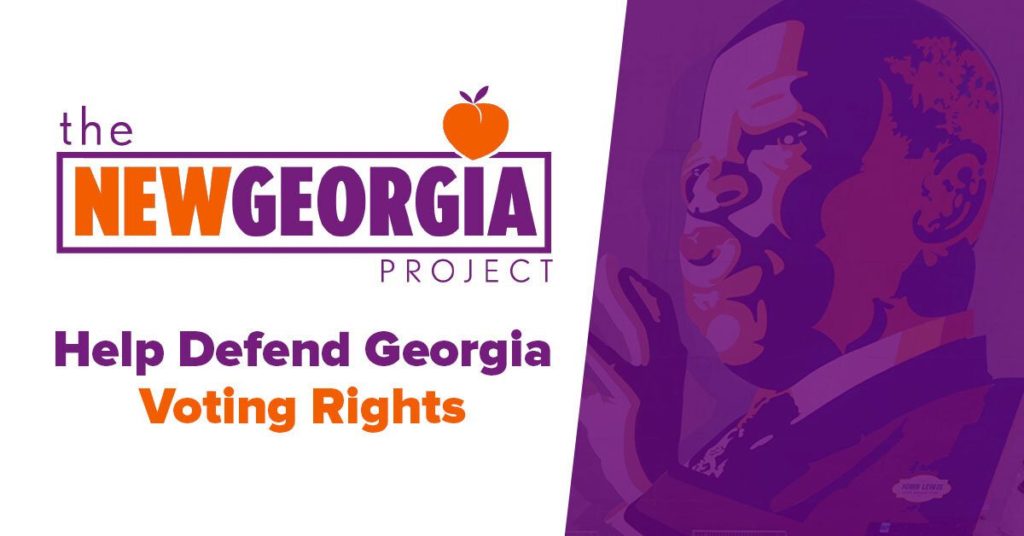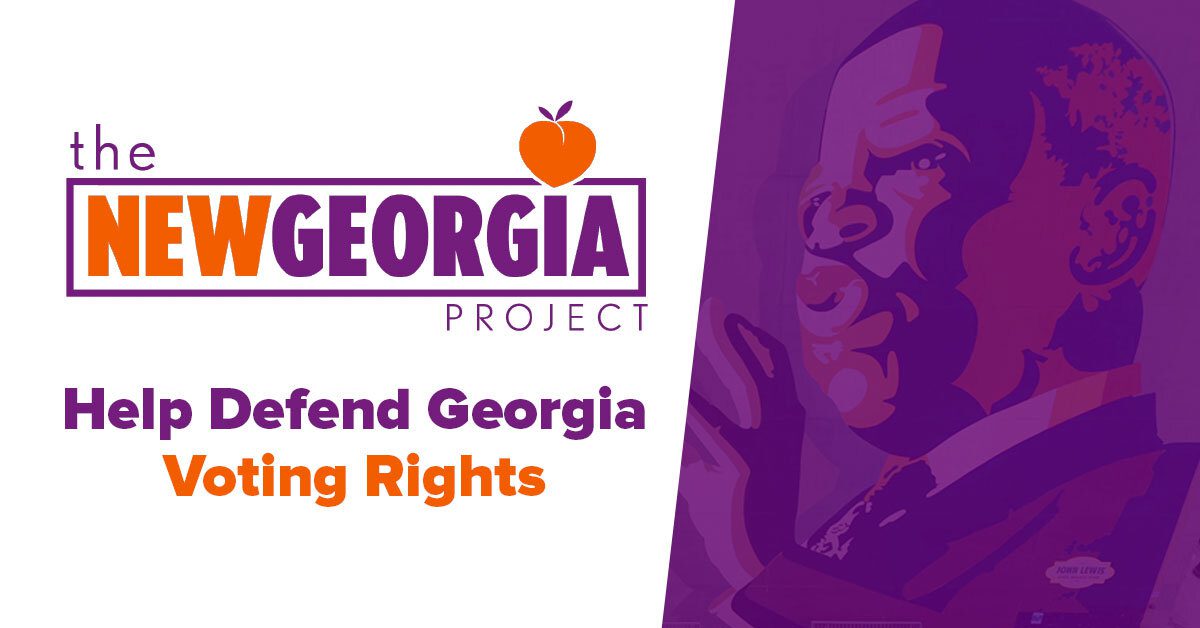by Anita Saville
Getting out the vote. It’s how we keep control of the U.S. House and Senate and protect free and fair elections. In Georgia, where the stakes are particularly high, a strong turnout means overcoming some of the country’s most draconian efforts at voter suppression.
Crucial races across the ballot.

After winning a special election in 2020, Sen. Raphael Warnock must run again this year. And the race is tight. Due to redistricting, Rep. Carolyn Bourdreaux faces a tough race in the House as well. Stacey Abrams is running again for governor against Republican incumbent Brian Kemp and Trump ally and former senator David Perdue. There’s no incumbent running for Lieutenant governor, giving one of the many Democrats running for this seat a shot, too. While Dems are unlikely to take over the state legislature, any gains can help slow the steady loss of Georgians’ voting rights in recent years.
Georgia is a key battleground for voters’ rights.

When Stacey Abrams ran for governor in 2018, she faced a mountain of voter suppression tactics that prompted her to create Fair Fight Action — which now promotes voters’ rights across the country. Unfortunately, things have only deteriorated since. In April of 2021, the Georgia legislature passed one of the harshest packages of voting restrictions we’ve seen to date. Additional restrictions have followed at the local level.
Absentee ballots and drop boxes are now much harder to come by. Mobile voting centers are banned and Sunday voting will be unavailable in many places. It’s now illegal to give anyone food or water while they wait in ever-longer lines. In addition, the Secretary of State no longer sits on the state election board, which is now controlled by the Republican-led legislature. The state board can overrule local boards as it sees fit. And Republicans are pushing Democrats off local boards in many counties.
All hands on deck!
To repeat the strong turnout by Democrats in 2020 and the special election of 2021, we must work even harder to engage voters this year. With the Georgia primary scheduled for May 24, we need all hands on deck. We must register as many Democrats as possible, educate voters about the new laws, and help them obtain mail-in ballots or get to the polls. Gains we make for the primary will lay important groundwork for the mid-terms elections in the fall.

Both Fair Fight and The New Georgia Project (which also focuses on voter engagement) are running phone banks that are efficient, well-organized, and impactful. I’ve worked with both organizations and have found there to be plenty of training, if you need it, and highly prepared leaders to answer any questions you have. Yes. Phone banks take patience and even a little courage. But they’re one of the best ways to connect with voters, especially in states like Georgia with large rural populations who may be hard to reach through texting or canvassing.

You can sign up to make calls that make a difference with
• Fair Fight (MWF, 5:00-8:00, Tu, 10:00-1:00) HERE and with
• The New Georgia Project (M-F, 5:30-8:30) HERE.


Leave a Reply